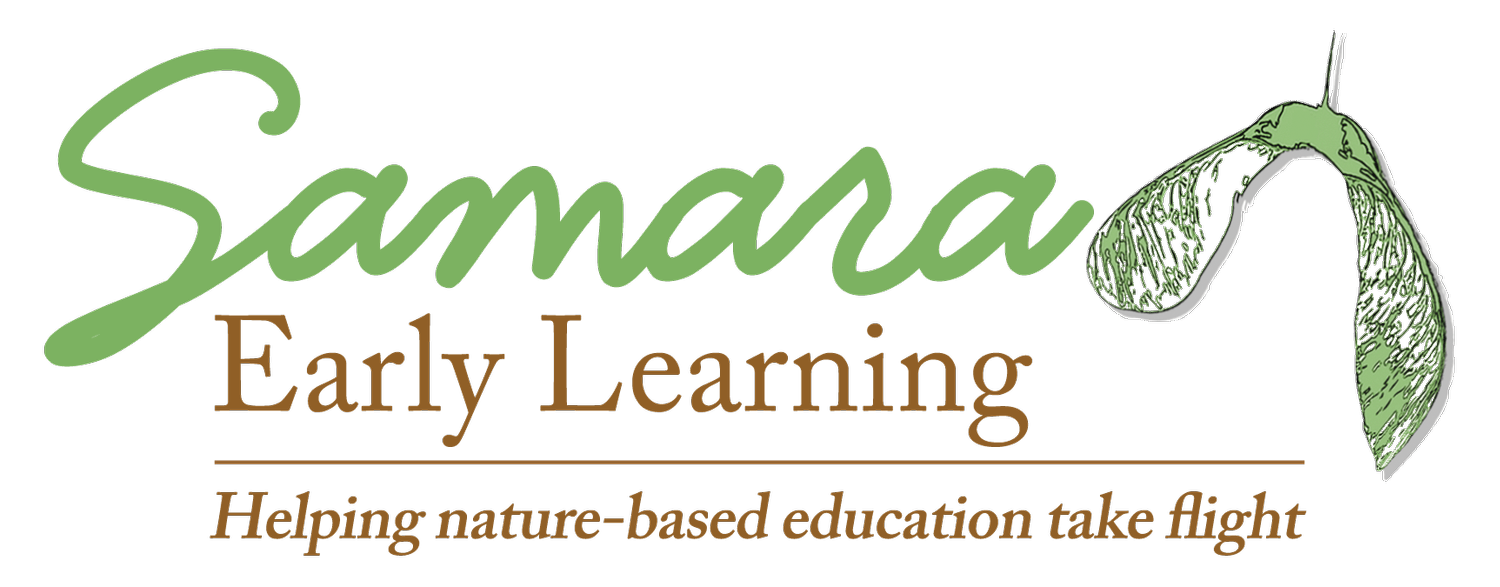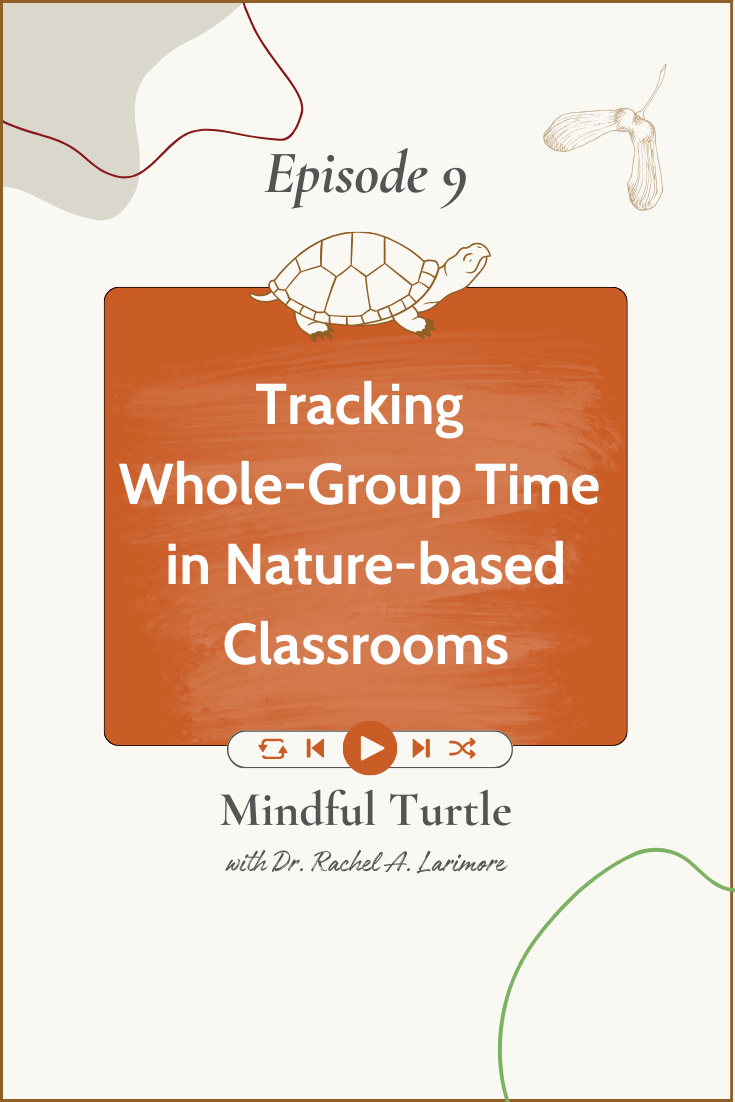Tracking Whole-Group Time in Nature-based Classrooms
This episode of the Mindful Turtle Podcast originally aired November 3, 2024. To receive podcast updates and other nature-based early childhood education news, subscribe to Samara Early Learning’s weekly newsletter written by Dr. Rachel A. Larimore.
Listen to this episode of the Mindful Turtle now:
This week's episode is the second in our series focused on time allotments in nature-based learning schedules. This week we will focus on time spent in whole-group activities which are valuable for developing social skills, fostering community, and creating belonging.
Rachel invites you to observe and record daily time spent in whole-group activities this week.
Whole-group activities are different than teacher-led activities in general. Whole-group activities mean when EVERYONE is together (the children & the teachers).
Why do we do large & whole group activities: For children to experience…
Active involvement & interactions in a group setting
A sense of community
A sense of belonging
Considerations when reflecting on whole group activities:
Activities lasting more than 10-15 minutes can be excessive, especially for young children.
Observing how much time you genuinely spend in whole group settings can illuminate areas needing attention.
Nature-based programs often include hikes or excursions that may be mistaken for free play but actually qualify as whole-group activities since they require all participants to engage in the experience collectively. A hike becomes a whole-group activity because movement is guided by adults, and children can't choose to stop or play independently.
Embracing the distinctions between whole-group activities and free play can enhance teaching practices, deepen relationships amongst classroom families, and strengthen your conviction in the nature-based pedagogy you provide. Understanding the distinction helps you structure your day effectively, articulate your practices to evaluators, strengthen advocacy for nature-based education, and support both communal and individual exploration.

